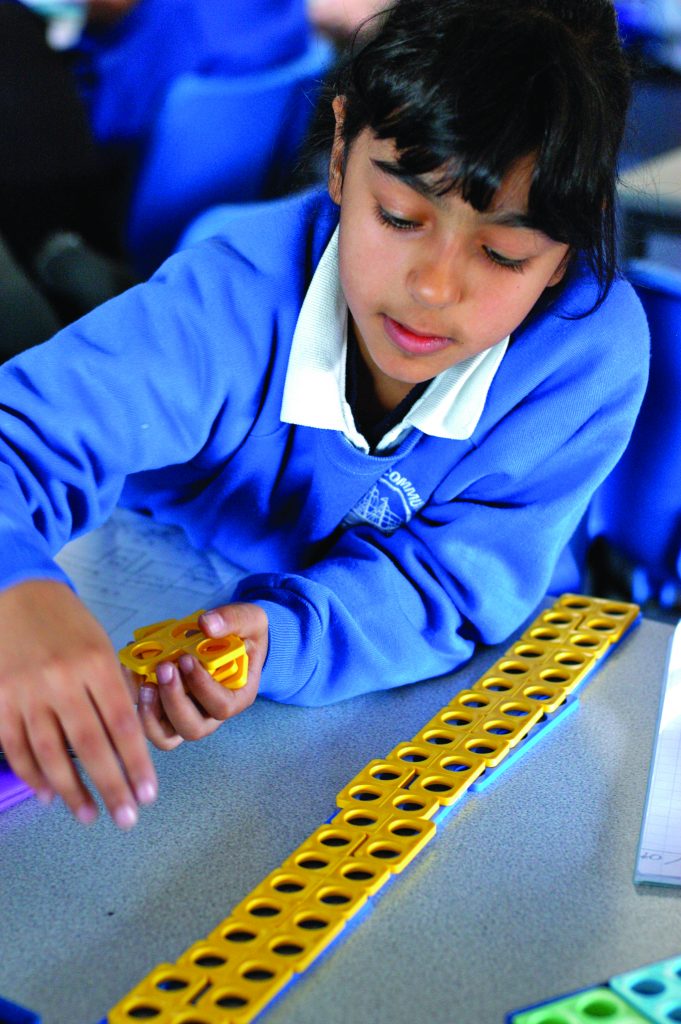
Perhaps more than ever before, mathematics is an interdisciplinary subject.
We are seeing digital evolution manifest across all industries and with that, maths education also needs to evolve. Senior research fellow Max Planck, from the Institute for the History of Science, penned an essay for The Conversation in March explaining how the study of history is being “revolutionised” by mathematics in the form of something he calls “the digital humanities”. Compiling, visualising and analysing different forms of data has become a critical part of the job for many people, across all sectors, in 2018. Using Planck’s focus on the humanities as an example, he noted: “Historians now have to get their heads around mathematics, too. While a database is never much more than an expression of arithmetic or linear algebra, the increasing amount of available data is calling for a more sophisticated approach.”
Whether today’s students enter tomorrow’s workforce in retail, media, academia, medicine, the arts, business, or a trade, they will need solid mathematical skills. Yet, according to the latest PISA results, the average mathematics score of New Zealand students declined between 2003 and 2015 from 523 to 495 points. Critically, these results also showed that the proportion of NZ students able to do “complex mathematical tasks” fell from seven percent to three percent between 2003 and 2015. Meanwhile, the proportion of students that “can complete only relatively basic mathematics tasks and whose lack of skills is a barrier to learning” rose from 15 percent to 22 percent in the same timeframe.

If maths is going to continue its trending rise in relevancy, this is a worrying result. For teachers, it presents the task at hand: how to increase maths performance and engage students in mathematics who may favour other subjects.
‘When am I ever going to use this in real life?’ is a question teachers may commonly receive from students who ‘don’t like maths’. However, this question no longer makes sense in our social media-centred, data-driven society.
To brainstorm some solutions to this critical issue, School News spoke to some of the minds behind maths programmes taught here in New Zealand.
Industry insights…
Caxton Educational curriculum facilitator Joel Bradley spoke to School News about what she believes student engagement in mathematics should look like…
Maths should be relevant, engaging, and fun. In a recent symposium, I sat in on a wonderful session with a teacher who spends the whole first day of class playing maths ‘games’ in a supportive environment, precisely to erase the stigma of students who don’t like maths and/or believe they are not good at maths.
As I visit schools around New Zealand, I see educators who are ready to tackle maths instruction from a cohesive, connected angle. The approach to teach maths strands in isolation is waning, as is the ‘drill and kill’ of numeracy, to the exclusion of the other curricular strands. Research has shown that teaching maths with rich tasks where strands are intertwined works to help students really learn maths and, to that end, I support this trend wholeheartedly.
It’s important to decide whether a maths programme is working for a particular student or student group. Are the students excited about maths? Do they talk about maths at home? Do they gladly and freely share what they are learning? I think these are all good questions to ask when educators sit around the table to evaluate their maths programmes.
Numicon director Margi Leech told School News why she thinks it tends to be difficult to engage students in mathematics…
Children don’t like maths because they can’t make sense of the abstract nature of using symbols; how to use them when problem-solving and how to apply them to their lives.
Maths is all about relationships and with structured concrete materials such as shapes or rods, then maths becomes achievable for everyone. These patterns and relationships can be used to solve problems.
Provide problems for children that relate and connect to everyday life experiences in measurement, geometry and statistics; modelling how you, the teacher, solve these same problems every week within the context of the number skills you are teaching. For example, skip counting in fives leads to counting around a clock. Skip counting in 10s leads to counting in millimetres. Learning about dollars and cents leads to place-value.
Understand your children. Some may never or at least delay memorising their times-tables. This does not mean they are not understanding maths, but just the memorisation part. A picture of numbers sure helps! For example, showing three ‘5-shapes’ joined together shows 3 x 5 = 15.
Review expectations of demanding children to do maths fast. Some mathematicians spend years figuring out problems with trial-and-error along the way. Instead, ask children to do maths well.
It is important that teachers value the importance of maths. Spend an hour at least on maths every day. Don’t let it slip off the timetable when a conflicting event happens. It is one of the main determiners for quality employment and getting out of poverty.
The IT Education Company New Zealand business manager Janine Trembath told School News how she believes teachers can tackle a lack of student interest in mathematics…
I feel that we accept too many students saying they ‘don’t like’ or ‘can’t do’ maths, when their dislike of maths often just reflects a lack of understanding in foundational math skills.
‘Number’ is the foundational math skill that all other maths is built on, so it’s vitally important that students develop a deep understanding of ‘number’.
The NZ math curriculum reinforces the importance of ‘number’ by advising primary school teachers to spend most class-time on this foundational skill. It can, however, be difficult to determine if younger students are mastering it on a conceptual level, or relying solely on rote memorisation techniques to get the right answer.
Fractions are a key indicator as to whether ‘number’ has been understood at a conceptual level. Students who haven’t developed a sound conceptual understanding of earlier numeracy tend to show signs of falling dramatically behind once they encounter fractions.
This is not to say students do not benefit from learning number sequences or times-tables, etc. Fluency is important and helpful when processing more difficult equations, but they do not (by themselves) make a competent mathematician.
If students go on to rely on memorisation of a sequence of equations used to solve a larger problem, for example, without understanding the reasoning behind the equations; they will not have a sound basis.
One solution is to ensure that students use a variety of different mathematical models in early math lessons.









